Center for Equity and Social Justice
Welcome to the Center for Equity and Social Justice at CT State Housatonic
The Center for Equity and Social Justice partners with various academic departments and student support programs on the Housatonic campus as well as community service agencies to provide lectures, workshops, discussions, film screenings, spoken word and art exhibits that explore issues of culture, belonging, power, oppression and injustice in our community.
Our Goals
- We strive to be a space that informs the Housatonic campus and the greater community on issues of identity, belonging, equity, diversity and social justice.
- We strive to enhance the cultural and educational experience of students by providing a safe and welcoming environment for students to engage in community building and connection
- We strive to amplify the voices of marginalized communities through education and collaboration.
- We strive to confront and explore issues that divide us, such as racism, classism, ethnocentrism, ableism, ageism, sexism and heterosexism.
- We strive to create an environment that values each member of our community.
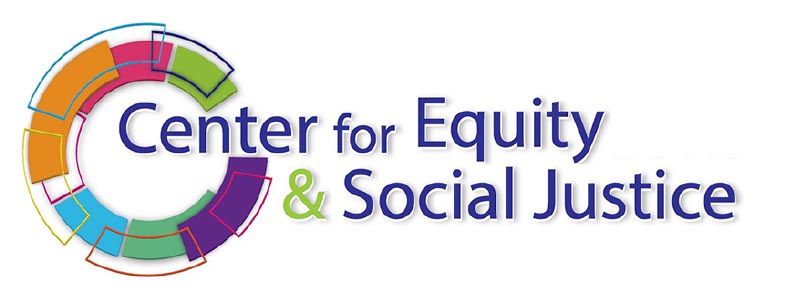
Contact Us
Location: CT State Housatonic, Beacon Hall #358
E-Mail: HC-EquityCenter@hcc.commnet.edu
Phone: 203-332-5039
Hours:
Monday-Thursday: 9 a.m.-5 p.m.
Fridays: 9 a.m.-1 p.m.
The Center for Equity and Social Justice is Supported by:
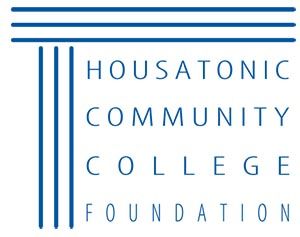
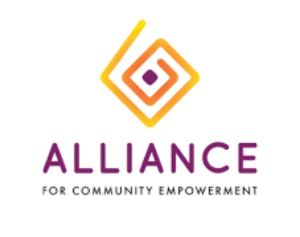
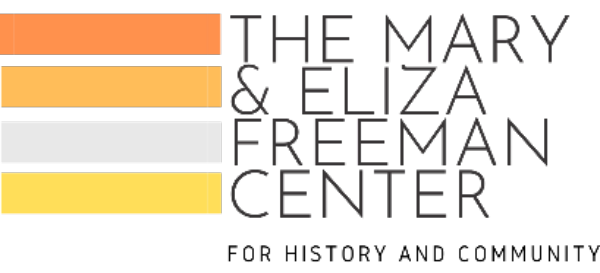
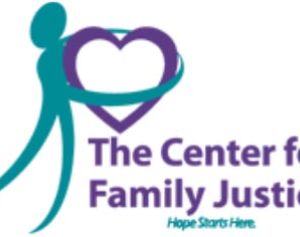
Resources
- Cultural Sensitivity in Academic and Professional Environments
- Implicit Bias and Its Impact on Decision-Making
- Allyship and Advocacy for Underrepresented Communities
- Celebrating Diversity: Exploring Different Cultural Traditions
The Center for Equity and Social Justice Team
In addition to their primary function at Housatonic, the team members of the Center for Equity and Social Justice all serve as Community Engagement Coaches with the responsibility for fostering and promoting meaningful community engagement initiatives among students. This role involves guiding, supporting, and mentoring students to become active and responsible members of their local and global communities. The Community Engagement Coach will work closely with students, faculty, and community partners to develop and implement programs that promote civic responsibility, social awareness, and community development.
Student Guidance:
- Provide one-on-one coaching and mentorship to students interested in community engagement.
- Help students identify their interests, strengths, and goals related to community involvement.
Program Development:
- Organize workshops, seminars, and training to educate students about community issues and effective engagement strategies.
- Create opportunities for students to participate in service-learning and volunteer projects.
Community Partnerships:
- Identify potential community partners and assess their suitability for student involvement.
- Facilitate partnerships that provide valuable learning experiences for students.
Assessment and Evaluation:
- Collect data and feedback from students and community partners to measure the effectiveness of engagement efforts.
- Use assessment data to make improvements and adjustments as needed.
Advocacy and Outreach:
- Promote the importance of community engagement within the college community.
- Advocate for the integration of community engagement into the college's curriculum and campus culture.
Diversity and Inclusion
At CT State Housatonic diversity and inclusion are not just words; they are the foundation of our educational mission. We proudly present the LGBTQIA+ and Allyship Initiative—a vibrant and inclusive program dedicated to celebrating diversity, promoting LGBTQIA+ awareness, and forging meaningful connections between our LGBTQIA+ community and its allies. This initiative is a testament to our commitment to creating a campus environment where every individual, regardless of sexual orientation or gender identity, feels safe, respected, and empowered to thrive.
Alison Williams, Ph.D. ,Campus Director of Diversity, Equity, and Inclusion Initiatives
Pronouns: she, her, hers
Community: LGBTQIA+
Male Success Initiative
At CT State – Housatonic, we recognize the importance of fostering an inclusive and supportive environment for all students. With this commitment in mind, we proudly present the Male Success Initiative— a program designed to empower men on their journey towards personal and academic excellence. Our initiative is more than just a program; it's a community-driven movement that aims to address the unique challenges faced by young men as they navigate higher education and prepare for their future careers. Through mentorship, workshops, and tailored resources, we seek to inspire confidence, promote resilience, and cultivate a sense of purpose among our male students.
Alexandros Valiantis, CESJI Coordinator
Pronouns: he, him, his
Community: Males Success Initiative (formerly Men’s Center)
The Family Economic Security Program
The mission of the Family Economic Security Program (FESP) is to provide students who are balancing work, college and family responsibilities with academic, career, financial and personal support. Through coaching, professional development, financial literacy education, family events and scholarships, we seek to provide the tools for students to succeed in all aspects of their lives.
Tarena Gadsden, Achievement Coach
Pronouns: she/her/hers
Community: Students with families
International OASIS
The International Oasis (International Student Affairs) is an epicenter operating as a HUB with the mission to positively impact the international and immigrant student population on the Housatonic Campus by providing services that empower educational development, a place of safety, a peaceful environment that offers students to obtain one on one support and resources at a time when they are dealing with trauma happening in their lives.
Pierre D’Haiti, Community Engagement Officer
Community: International Student Affairs
Justice for Higher Education Program (JHEP)
The Justice for Higher Education Program (JHEP) is committed to equity in equal access to education for people who have been impacted by the Justice System in America. The center is committed to providing equal access and wrap-around services to serve the immediate and emergency needs of Justice Impacted Students who are enrolled at CT State - Housatonic Campus. JHEP and the Equity Center are committed to students' holistic needs and to assisting students on their educational and career path.
Da’ee Mcknight, Reentry Affairs Specialist
Pronouns: he, him, his
Community: Justice Impacted Students/ Reentry Affairs
Veterans Student Affairs
Housatonic’s Veteran Student Affairs is a dedicated resource center designed to support and empower military veterans as they transition into higher education. This office offers a range of services, including academic advising tailored to veterans' unique needs, a welcoming community for veterans to connect and share experiences, and access to mental health and counseling resources to address the specific challenges that veterans may face. These coaches understand the military culture and the academic landscape, making it easier for veterans to navigate their educational journey successfully.
Zoe Redzep, Community Engagement Coordinator
Community: Veterans Student Affairs
Additional Affiliates/Resources
Mariyln Wehr, Campus Lead
Pronouns: she, her, hers
Area: Disability and Accessibility Services
Lindsey Norton, Wellness Counselor
Pronouns: she, her, hers
Area: Mental Health and Wellness
Diversity Awareness Committee
Contact: Professor Driss Mellouk
Email: driss.mellouk@ctstate.edu
Understanding Pronouns: A Guide For College Students
What are Pronouns?
Pronouns are words that are used to replace nouns in a sentence. They allow us to refer to people or things without constantly repeating their names. Pronouns are an essential part of language and communication.
Here are some examples of different types of pronouns:
She, her, hers
They, them, theirs
These are just some of the common pronoun categories. Pronouns play a crucial role in communication by allowing us to speak and write more efficiently. They also contribute to respecting people's identities and preferences, particularly when it comes to gender pronouns like he, she, they, and others. Understanding and using pronouns correctly is an important aspect of inclusive and respectful communication.
Why Do Pronouns Matter?
Understanding and respecting pronouns is crucial for several important reasons:
1. Respect for Individual Identity: Using the correct pronouns shows respect for a person's gender identity and expression. It acknowledges and affirms their self-identified gender. Recognizing and using a person's preferred pronouns creates an inclusive environment where everyone feels valued and accepted, regardless of their gender identity.
2. Reducing Emotional Distress: Relying on assumptions about a person's gender based on appearance or stereotypes can lead to misgendering which can be hurtful and emotionally distressing for individuals, as it can make them feel unseen, invalidated, or even rejected. Using correct pronouns helps prevent this.
3. Promoting Mental Health and Well-being: Being acknowledged and respected in terms of gender identity contributes to a person's mental health and overall sense of well-being. It fosters a positive sense of self.
4. Fostering Safe Spaces: Using correct pronouns helps create safe spaces where individuals can express their identities without fear of discrimination or misunderstanding. Understanding and using correct pronouns is an educational opportunity for everyone to learn about gender diversity and the experiences of transgender and non-binary individuals.
5. Setting an Example: In professional and academic settings, respecting pronouns is a matter of professionalism and common courtesy. It shows that you value and respect your colleagues and peers. By using correct pronouns, you set an example for others, encouraging a culture of inclusivity and respect in your community.
Pronouns matter because they are an integral part of acknowledging and respecting a person's identity. By using correct pronouns, you contribute to creating a more inclusive, respectful, and empathetic society.
To learn more, please contact Alison Williams, Campus Director of Diversity, Equity and Inclusion Initiatives
Phone: 203-332-5175
Email: alison.williams@ctstate.edu
Office Location: BH 278A
Below is a glossary of key terms related to diversity, equity, inclusion, belonging, and social justice:
Diversity: The presence and recognition of a variety of identities, backgrounds, and experiences within a group, organization, or community. This includes dimensions such as race, ethnicity, gender, sexual orientation, age, ability, religion, and more.
Equity: Ensuring fairness and justice in the distribution of resources, opportunities, and benefits. It involves identifying and addressing systemic barriers that may disproportionately affect marginalized groups.
Inclusion: Creating an environment where all individuals, regardless of their identities or backgrounds, feel valued, respected, and empowered to participate fully.
Belonging: A sense of acceptance, value, and connection that individuals feel within a group, organization, or community. It goes beyond mere inclusion and involves feeling like an integral part of a community.
Social Justice: The pursuit of equality and fairness in the distribution of resources, opportunities, and privileges within society, particularly for marginalized and underrepresented groups.
Intersectionality: The interconnectedness of various aspects of a person's identity (e.g., race, gender, sexual orientation, socio-economic status) and how these intersect to shape unique experiences and challenges.
Microaggressions: Subtle, often unintentional, actions or comments that communicate derogatory or belittling messages to individuals based on their race, gender, or other aspects of their identity.
Implicit Bias: Unconscious attitudes, stereotypes, or beliefs that influence our behavior, often leading to unintentional discrimination or inequitable treatment of certain groups.
Privilege: Unearned advantages or benefits granted to certain groups based on their social identities, which can be invisible or taken for granted by those who possess them.
Marginalization: The process by which certain individuals or groups are pushed to the fringes of society, often resulting in exclusion, discrimination, and reduced access to resources or opportunities.
Institutional Racism: Systemic policies, practices, and procedures within institutions (like government, education, and workplaces) that create and perpetuate disparities and advantages based on race.
Allyship: The act of supporting and advocating for marginalized or underrepresented groups. Allies work to create inclusive spaces and advocate for equity.
Cultural Competence: The ability to interact effectively with people from different cultures or backgrounds, understanding and respecting their perspectives, values, and norms.
Stereotype Threat: The fear or anxiety experienced by individuals when they believe they may be judged based on a negative stereotype associated with their identity group.
Bystander Intervention: The act of stepping in and taking action when witnessing a situation where harm or discrimination is occurring.
Affinity Groups: Groups of individuals who come together based on shared characteristics or experiences, often to provide support, networking, and advocacy.
Cultural Humility: A lifelong commitment to self-evaluation and self-critique in order to learn from, relate to, and work effectively with individuals from diverse cultural backgrounds.
Transgender: A term used to describe individuals whose gender identity differs from the sex they were assigned at birth.
LGBTQ+: An acronym representing lesbian, gay, bisexual, transgender, queer, and other sexual orientations and gender identities.
Microaffirmations: Small, intentional acts or gestures that communicate respect, validation, and affirmation to individuals, particularly those from marginalized or underrepresented groups.
This glossary provides a starting point for understanding key terms related to diversity, equity, inclusion, belonging, and social justice. Continued learning and engagement with these concepts can help promote a more inclusive and equitable society.
To learn more, please contact Alison Williams, Campus Director of Diversity, Equity and Inclusion Initiatives
Phone: 203-332-5175
Email: alison.williams@ctstate.edu
Office Location: BH 278A
File a Discrimination and/or Sexual Harassment/Misconduct Complaint
You may file a complaint of discrimination and/or sexual harassment/misconduct on behalf of yourself or report an incident that you have witnessed on campus. Reports may be filed anonymously.
CT State Community College does not discriminate on the basis of age, ancestry, color, national origin, gender identity or expression, genetic information, learning disability, marital status, intellectual disability, physical disability (including but not limited to blindness), present or past history of mental disability, prior criminal record, race, religious creed, sex (including pregnancy and sexual harassment), sexual orientation, retaliation for previously opposed discrimination or coercion, veteran status, victims of domestic violence, sexual assault and/or trafficking or any other federal or state protected class in its employment, programs, and activities, unless the provisions of Section 46a-80(b) or 46a-81(b) of the Connecticut General Statutes are controlling or there are bona fide occupational qualifications excluding persons in one of the above protected groups. For a full version of the policy go to ct.edu/files/pdfs/4.13-Interim-Connecticut-State-Colleges-and-Universities-Discriminatory-Harassment-Nondiscrmination-Title-IX-Policy.pdf
The following person has been designated to respond to inquiries regarding the non-discrimination policies and procedures: Nicholas D'Agostino, Director of Equity and Civil Rights, and can be reached via email at CTState-CivilRights@ct.edu.